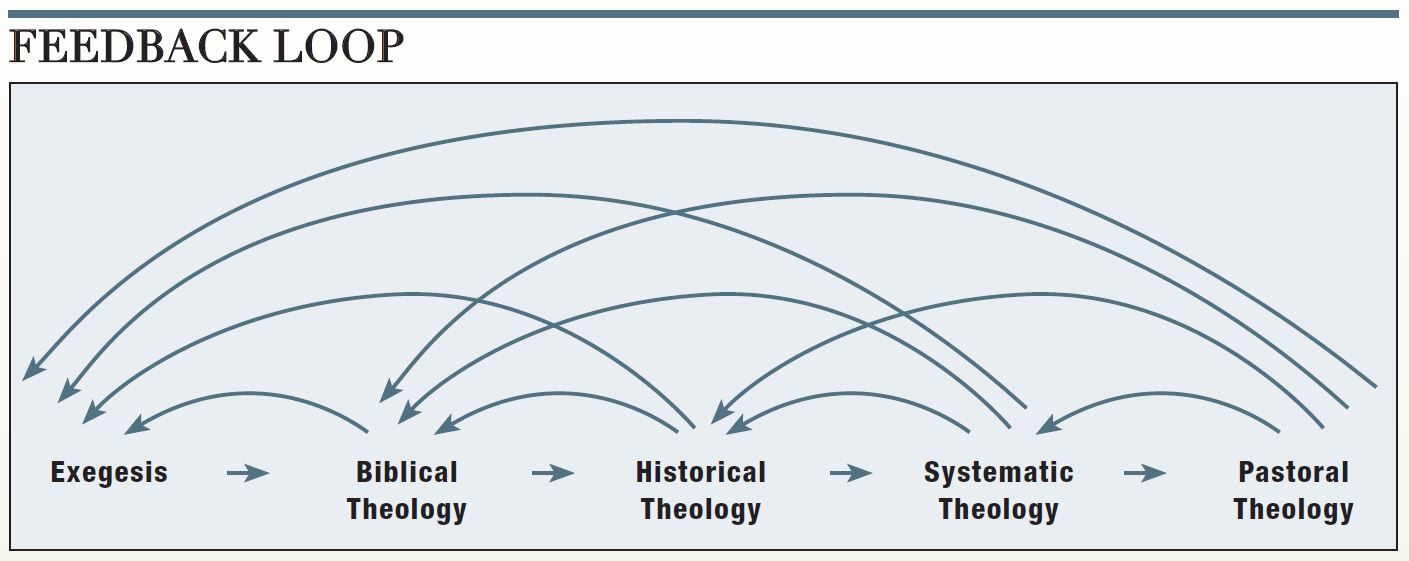Lesson 7: The Canonical Horizon
Three Blessings
Let’s keep talking about the practical nature of systematic theology. I can think of at least three ways that systematic theology will cause you to flourish spiritually:
It will make you a more faithful Bible interpreter.

We must not try to exegete the Bible while ignoring biblical, historical, systematic, and practical theology! If we only exegete individual verses of Scripture, we will miss out on the message of the whole Bible. Faithful exegesis leads to systematic theology.
But it also works the other way. As J.I. Packer explained,
The maxim that exegesis and biblical interpretation are for the sake of an adequate systematic theology is true, yet if one stops there one has told only half the story. The other half… is that the main reason for seeking an adequate systematic theology is for the sake of better and more profound biblical interpretation.
—J.I. Packer, "Preaching as Biblical Interpretation,” in Inerrancy and Common Sense, ed. Roger R. Nicole and J. Ramsey Michaels, 188, from "Unity and Diversity in the New Testament: The Possibility of Systematic Theology," by D.A.
Carson, emphasis mine.

Using the discipline of systematic theology will improve the accuracy of your exegesis.
It will give you confidence to live rightly.
In our daily life, we often face difficult “situations where we need to be able to draw from a logically coherent point of view, a consistent, stable view of God, the world around us, and ourselves.”¹
It is systematic theology that gives us organized and coherent beliefs about God and ourselves. This gives us rootedness. This gives us confidence to live rightly because we know who God is, and we can define who he is in clear propositions, in categories from Scripture and filled with Scripture.
It will enrich your delight in God’s glory.
Take the doctrine of salvation (soteriology), for example. With biblical theology, we can see how God’s plan of salvation leads to and culminates in Christ and his gospel. We can hear how God's plan of salvation developed through the OT and into the NT, was accomplished by Jesus through his life, death, and resurrection, and will be completed at Jesus' return. How glorious!
But how can we understand each aspect of our salvation? They are not presented systematically in the Bible, but they should be understood systematically.
Consider Robert Letham’s definition of justification:
Justification entails a right standing with God, in which he declares us righteous, forgiving our sins and imputing or reckoning to us the righteousness of Jesus Christ. It is only by faith, since faith looks exclusively to Christ for salvation; faith contributes nothing but merely receives from God. Consequently, nothing in us contributes to justification. Nevertheless, good works, produced by the Holy Spirit, always follow our justification, in that God’s grace, in vindicating us legally, also transforms us. Justification is no legal fiction; in our union with Christ, his righteousness is now ours. We are constituted righteous.
—Robert Letham, Systematic Theology, 669.

You cannot assemble this definition from any single passage in the Bible. You must systematically draw from many passages. Only then do you unveil the glorious whole truth about how God has declared believers righteous through faith in Christ, through his finished work.